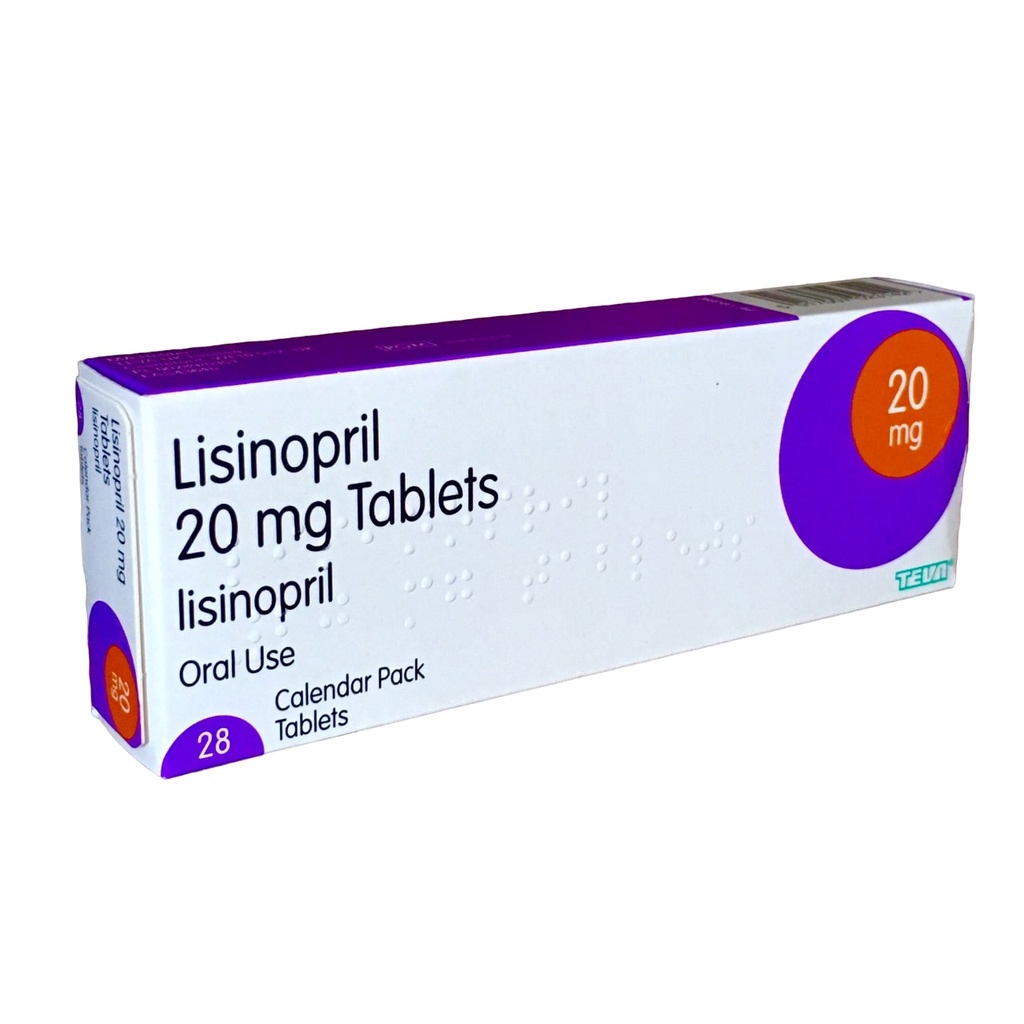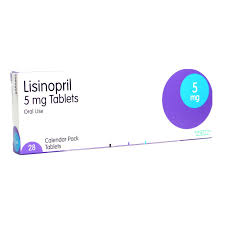15 Lisinopril Side Effects You Should Know About
Written by Fiona Hayes DVM | Reviewed by Uche Ruth
Updated on June 23, 2024
Key Takeaways:
- Lisinopril (Zestril) is an angiotensin-converting enzyme (ACE) inhibitor prescribed to treat high blood pressure, heart failure, and heart attacks. While well-tolerated by many people, it can cause side effects.
- Common lisinopril side effects include low blood pressure, dizziness, and headache. Some people may also experience a dry cough that requires them to stop taking it.
- Less common lisinopril side effects include diarrhea, blurred vision, and erectile dysfunction.
- Serious lisinopril side effects include severe skin reactions and angioedema (swelling of the face, lips, and tongue). If you believe you’re experiencing a serious side effect, seek emergency medical care.
Table of Contents
Overview
Almost half of Nigerian adults have high blood pressure (hypertension). When left untreated, it can raise the risk of serious health complications like heart disease or strokes. Medications like angiotensin-converting enzyme (ACE) inhibitors are some of the first-choice options to treat high blood pressure.
Lisinopril (Zestril) is a commonly prescribed ACE inhibitor. It’s FDA approved to treat hypertension, heart failure, and heart attacks. This once-daily oral medication is generally well-tolerated. But there are side effects you should be aware of — especially if you’re just starting it. Let’s discuss 15 lisinopril side effects to be aware of.
1. Dizziness
Dizziness was the most commonly reported side effect in lisinopril’s initial clinical trials. This tends to happen when first starting the medication or when raising the dose. It usually improves over time as your body gets used to lisinopril. But dizziness can lead to falls, which can be dangerous for older adults.
2. Low blood pressure and fatigue
Lisinopril lowers blood pressure. But in some cases, it can lower blood pressure too much (called hypotension). Feeling tired or fatigued is a common symptom of hypotension. But fatigue when you first start taking lisinopril can also just be a sign that the medication is starting to work. In this case, tiredness should be mild and go away as your body adjusts to lisinopril.
But in some cases, hypotension can become serious. Very low blood pressure can cause some people to faint. In severe cases of hypotension, blood may not be fully reaching all areas of your body.
Healthcare providers typically start people with lower doses of lisinopril and raise the dose slowly as needed. This can help prevent and manage this side effect.
Make sure to let your provider know if you experience symptoms of low blood pressure, or if your blood pressure readings are low. They may make dosage changes or suggest a different blood pressure medication.
3. Dry cough
One of lisinopril’s most well-known side effects is a dry cough. People often describe it as a tickling or scratching sensation in the throat. Lisinopril can cause a build-up of two proteins in the body: bradykinin and substance P. It’s thought that higher levels of these proteins can cause airways to tighten, potentially leading to this cough.
People who experience a dry cough often report it happening within the first few weeks or months of taking the medication. But it can happen at any time. For some people, this lisinopril side effect is mild or gets better with time. For others, it can be very bothersome or persistent.
Talk to your healthcare provider if you develop an unexplained cough after starting lisinopril. They may recommend switching to an angiotensin II receptor blocker (ARB) medication, like losartan (Cozaar). ARBs work similarly to ACE inhibitors but are much less likely to cause a cough.
4. Chest pain
Chest pain is a possible lisinopril side effect. While not common, it can be concerning if it happens. It seems to occur more often when people take this medication for heart failure.
If you experience any chest pain while taking lisinopril, contact your healthcare provider. Chest pain can have many causes, including serious heart problems. Your provider can help identify what’s causing your pain.
If you experience chest pain that feels severe, worsens with physical activity, or causes nausea or vomiting, call 911 or go to the nearest emergency room. These are possible symptoms of a heart attack.
5. Diarrhea
Diarrhea is an uncommon lisinopril side effect that’s sometimes reported. You can take lisinopril with or without food. But taking your doses with food may help lessen diarrhea. Avoiding spicy or greasy foods can also help manage this lisinopril side effect. And it’s a good idea to stay well hydrated if you experience loose stools.
If you experience severe or excessive diarrhea, contact your healthcare provider. This isn’t typical with lisinopril and may have another cause.
6. Headache
Taking lisinopril can also cause headaches. This may be more common when first starting lisinopril or after a dose change. Headaches may happen because lisinopril is working to lower blood pressure.
Headaches from lisinopril generally improve over time. If needed, pain relievers like acetaminophen (Tylenol), can help temporarily relieve them until your body adjusts to the medication. Let your healthcare provider know if your headaches worsen or don’t improve.
7. High creatinine levels
Up to 10% of people taking lisinopril in clinical trials experienced an increase in serum creatinine. Serum creatinine is a blood test used to measure kidney function. Creatinine is a waste product that’s removed from the blood by the kidneys. High creatinine levels could mean your kidneys aren’t working as well as they should.
ACE inhibitors like lisinopril can slow down the kidneys’ removal of creatinine. People with existing kidney disease, or those taking diuretics (“water pills”), may be more likely to experience high creatinine levels. Fortunately, this side effect is usually temporary. But your healthcare provider may recommend stopping lisinopril or reducing your dose if your creatinine levels remain high.
High creatinine levels may not cause symptoms, especially if changes are mild. That’s why it’s important to go for all recommended blood tests. These tests help your provider watch for signs of this side effect and manage it if it happens.
8. High potassium levels
People taking lisinopril may also develop high potassium levels (hyperkalemia). Usually, this side effect is mild. But severe hyperkalemia is possible.
If left untreated, high potassium can lead to life-threatening problems, like abnormal heart rhythms. People with other risk factors, such as diabetes, may be more likely to develop hyperkalemia. There are also many other medications that can cause this side effect, such as spironolactone (Aldactone).
High potassium often has no symptoms. Going for regular blood tests can help your healthcare provider make sure your potassium level is staying within a healthy range. Depending on how high your potassium level is, your provider may recommend switching to a different medication or adjusting your medication routine.
9. Swelling of face, lips, tongue (angioedema)
A rare but serious lisinopril side effect is angioedema. Angioedema is a type of swelling, usually of the face, neck, or mouth. And it can become life-threatening. Although it may appear like an allergic reaction (anaphylaxis), it’s not.
Researchers believe that angioedema from lisinopril may be due to a buildup of bradykinin and substance P. Too much of these two proteins can lead to swelling. In severe cases, swelling blocks the airways and can cause trouble breathing. People taking lisinopril can experience angioedema at any time — even if they’ve been taking it for a while.
Certain people may be more likely to develop angioedema while taking lisinopril, including:
- African Americans
- Women
- Adults over 65 years old
- People who smoke
- People who take aspirin or other nonsteroidal anti-inflammatory drugs (NSAIDs)
Certain people should avoid taking lisinopril. This includes people who have experienced angioedema with a different ACE inhibitor. It also includes those who have hereditary angioedema or idiopathic angioedema (swelling with no clear cause).
If you develop swelling while taking lisinopril, let your healthcare provider know as soon as possible. They may recommend stopping lisinopril. But if you have trouble breathing, your swelling is rapid, or you can feel your tongue or throat swelling, call 911 or seek emergency medical attention.
10. Blurred vision
Some people have reported blurred vision while taking lisinopril. But this side effect isn’t common. If you experience it, avoid driving or performing activities that require focus.
You may find blurred vision is more noticeable when you first start taking lisinopril or after a dose increase. This may be a sign that the medication is helping to lower your blood pressure. If this is the case, it should resolve on its own once your body adjusts to lisinopril.
If blurred vision doesn’t go away or is accompanied by fainting or fatigue, contact your healthcare provider. These are likely symptoms of hypotension. It could mean your lisinopril dose is too high for you.
11. Severe skin rash
People taking ACE inhibitors, such as lisinopril, have experienced severe skin rashes and reactions, but this is very rare. These include hives, eczema-like rashes, and itching. Some people taking lisinopril have also reported life-threatening skin reactions, such as Stevens-Johnson syndrome.
If you develop a skin rash at any time while taking lisinopril, contact your healthcare provider (even if it seems mild). If the rash is severe or widespread, or you also have other symptoms like a fever, seek medical help right away.
12. Erectile dysfunction
Lisinopril doesn’t commonly cause erectile dysfunction (ED). In fact, it often helps improve ED symptoms if you already have them. But in rare cases, some men experience ED shortly after starting lisinopril. But the good news is that it’s usually temporary and resolves on its own.
However, it’s always a good idea to talk to your healthcare provider if you develop new or worsening ED symptoms. There are many causes for ED. Your provider can help determine if lisinopril is contributing to your symptoms. They can also recommend steps you can take to help manage ED symptoms.
13. Liver damage
Another very rare but serious lisinopril side effect is liver damage. It’s reported to occur in less than 2% of people taking lisinopril. Liver damage typically develops within the first 8 weeks (2 months) after starting an ACE inhibitor.
If you have a history of liver problems, let your healthcare provider know. They may want to check liver function blood tests regularly. You should also let your healthcare provider know if you notice symptoms of liver damage. These can include dark urine, jaundice (yellowing of the skins or eyes), or severe stomach pain.
14. Birth defects
You shouldn’t take lisinopril if you’re pregnant or trying to become pregnant. ACE inhibitors have a boxed warning (the FDA’s strictest warning for medications) to avoid them during pregnancy. This is because they can harm a fetus. Lisinopril can affect a fetus’ kidney development. It can also lower the amount of amniotic fluid (the protective liquid around the fetus in the womb).
If you become pregnant or want to try conceiving, immediately inform your healthcare provider. They’ll likely recommend stopping lisinopril and switching you to a safer blood pressure medication, such as methyldopa.
15. Allergic reactions
Allergic reactions aren’t the same thing as side effects. But it’s still important to know about them, especially when you first start taking a medication. Allergic reactions to lisinopril are very rare but can become serious.
Some allergic reactions, such as hives, may be mild. Others, such as anaphylaxis (swelling of the throat), can be life-threatening. It can be difficult to know if a reaction will become severe. So if you believe you're having an allergic reaction, contact your provider. And if your symptoms seem severe, call 911 or go to your nearest emergency room.
Treatment
When should I contact my healthcare provider about lisinopril side effects?
Most lisinopril side effects are mild and temporary. So if anything is excessive or persistent, let your healthcare provider know. You should also let them know if you develop an unexplainable cough while taking lisinopril. This side effect, while not dangerous, may require you to stop the medication.
Seek medical help right away if you’re having symptoms of a serious lisinopril side effect. This could include trouble breathing, severe skin rashes, or swelling of the face, lips, or tongue.
Medications & Collections
These drugs are vital for controlling and improving the health of individuals with this condition. They include both preventive and symptomatic treatments.

Lisinopril 10mg
₦2,750

Lisinopril 20mg
₦2,850

Lisinopril 5mg
₦2,350
